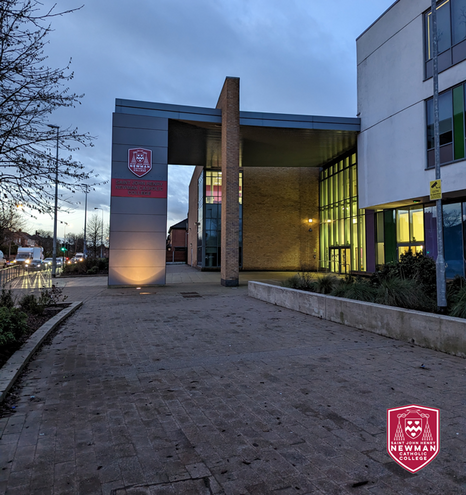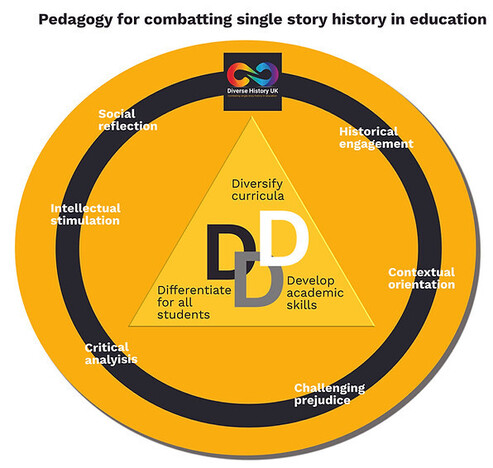News18 India · @News18India
29 followers · 726 posts · Server india.goonj.xyzAt the time of the first Lok Sabha, the share of women in the House was less than five per cent. In the next 68 years, in 2019, it reached about 15 per cent. For women representation to reach 33 per cent in Lok Sabha, it would take another 50 years, if not more
#NUMBERSPEAK #Room #LokSabha #Assemblies
https://www.news18.com/india/numberspeak-no-room-for-women-in-this-house-lok-sabha-has-15-female-mps-assemblies-no-better-8561373.html
#numberspeak #room #loksabha #assemblies
Empiricism · @empiricism
119 followers · 60 posts · Server sustainability.masto.hostUpgrading #democracy from the voter perspective.
Transparency is associated with honesty. Honest politicians & business people would want to have a transparent government & business culture in which the citizens were aware of the political & business decisions that were being made on their behalf - & the evidence, the reason why those decisions were being made.
In a mature democracy, governments & businesses decisions will be transparent.
#democracy #politics #economics #sustainability #assemblies
Newman Catholic College · @NewmanRCCollege
1 followers · 53 posts · Server mastodon.educationThis week assemblies are Rewards Assemblies and they will be led by our Year Leaders
Mr Newsome and Mr Ibrahim - Year 7
Mr Roebuck - Year 8
Mr Fitzgerald - Year 9
Mr Harrod - Year 10
Mr Lee - Year 11
Newman Catholic College · @NewmanRCCollege
1 followers · 47 posts · Server mastodon.educationThis weeks assembly theme has been Safeguarding: Being kind to yourself and others, todays will be delivered by Miss Sweeney.
Newman Catholic College · @NewmanRCCollege
1 followers · 44 posts · Server mastodon.educationThis weeks assembly theme is Safeguarding: Being kind to yourself and others, they will be delivered by Miss Sweeney.
Newman Catholic College · @NewmanRCCollege
1 followers · 41 posts · Server mastodon.educationThis weeks assembly theme is Safeguarding: Being kind to yourself and others, they will be delivered by Miss Sweeney.
Chris · @muir
131 followers · 719 posts · Server todon.euSlovenia's Initiative for Citywide Assembly (Iniciativa mestni zbor – IMZ) celebrates 10 years of citizen assemblies.
#DirectDemocracy #Assemblies #Municipalism #Horizontalism #ParticipatoryDemocracy
https://geo.coop/articles/slovenias-imz-celebrates-10-years-citizens-assemblies
#directdemocracy #assemblies #municipalism #horizontalism #participatorydemocracy
Cory Doctorow's linkblog · @pluralistic
37753 followers · 35224 posts · Server mamot.frThe Institute's goal is to chart a fourth path, which seeks out the best parts of all three outcomes, while leaving behind their flaws. This includes #DeliberativeDemocracy tools like #Sortition and #assemblies, backed by transparent machine learning tools that help surface broadly held views from within a community, not just the views held by the loudest participants.
18/
#DeliberativeDemocracy #sortition #assemblies
Diverse History UK · @diversehistory
31 followers · 49 posts · Server universeodon.comWe help #educators to provide a #diverse and representative #curriculum. We do this through #teacher #CPD and #coaching, #student #workshops and #assemblies, #keynote speeches, curriculum design and #resource production. We are passionate about diversifying #education.
#educators #diverse #curriculum #teacher #cpd #coaching #student #workshops #assemblies #keynote #resource #education
Usufruct Collective · @usufructcollective
153 followers · 40 posts · Server kolektiva.socialPoints of Unity template for shared practices and processes (for social movement groups and popular organizations of various kinds):
Direct-Democracy: Direct democracy refers to direct collective decision making. Direct democracy enables collective dialogue, decisions, and actions to achieve various goals and solve various problems. Deliberation is foundational to a practical direct democracy as it enables questions, amendments, conversations, problems, solution criteria, multiple perspectives, critiques, concerns, alternative possibilities, dissent, and evaluation of pros and cons to round out proposals and decisions made. After deliberation, there is an aim for full agreement. If there is not full agreement, there is further discussion and then a decision is made by majority vote. ***The specifics of direct democracy can be tweaked and even left out of this section and simply included in the bylaws.
Horizontality: Horizontality refers to the presence of self-organization and the absence of hierarchy. Hierarchy refers to institutionalized top-down command obedience relations. Horizontality includes horizontal rights such as freedom from hierarchy, freedom from oppression, freedom from domination, freedom from exploitation, and freedom to participate in self-managed groups and relations. This group strives to be internally horizontal and contribute to horizontal relations. etc. ***can alternatively be called or framed as: non-hierarchy, or egalitarian relations, or opposition to hierarchy. With different groups, different framings and wordings will make more sense. Depending on group and context, it may or may not make sense for a group to give a list of various hierarchies in such a points of unity document.
Free Association and Participatory activity: Free association refers to freedom of and from associations and participatory activity within associations. For there to be free association and participatory activity, persons and groups must have the guaranteed freedoms to choose their activities and associations while respecting and enabling freedoms of others to do the same. All labor, work, and action within this group is to be voluntary and non-coerced. If someone does not like a policy that is made, they can continue to argue for and advocate an alternative proposal, continue to argue one’s point formally and informally, choose to not participate in the implementation of the policy they disagree with while remaining in the group, or choose to leave the association. *** This point can potentially be included in other points of unity without being its own point.
Direct Action: Direct action refers to opposing unfreedom and injustice through self-managed action to achieve various goals. Direct action can be contrasted to indirect action of top-down organizing and relying on rulers to solve social problems. Direct action includes a wide array of potential activities and campaigns against specific hierarchical institutions for short term, mid-term, and long-term goals. *** A description giving examples of direct action tactics such as occupations, blockades, strikes, boycotts, etc. is optional. An alternative to the wording “unfreedom and injustice” can be “domination, exploitation, and oppression”.
Mutual Aid: Mutual aid refers to voluntary multidirectional help to meet needs. Mutual aid can exist within a group, between groups, between groups and persons, between persons etc. Mutual aid enables groups and people to pool abilities, needs, ideas, proposals, actions, infrastructure, resources, tools, etc. together. Mutual aid can include a wide array of potential activities from mutual assistance towards common goals, creating or participating in development of the commons (including communal fields, factories and workshops, social centers, libraries, eco-technology projects, etc), free food distribution, communal childcare, etc. ***Such a list or variation thereof is optional to include.
For groups that collaborate with other groups in various formal and informal ways:
Co-Federalism: Co-federalism refers to ways organizations can freely collaborate for inter-collective coordination, decisions, and actions in a way that enables decision making power to be in the hands of people directly. Delegated persons and councils of collectives can meet up for deliberation and administration. Such delegates and co-federal councils are mandated and recallable to their respective popular assemblies, are merely communicative, administrative, and have no policy making power. All policies are made and ratified by general assemblies directly. ***Alternatively the words federalism, confederalism, intercommunalism, inter-collectivity, egalitarian federation, etc. can be used in place of co-federalism. Co-federalism is a neologism, and confederalism and federalism both have connotative issues despite them referring to an essential practice for horizontal and free inter-organizational relations.
Addendum points for Community assembly groups in particular:
Communal Self Management: Communal self-management refers to horizontal, democratic, participatory community politics and economics. Such communal self-management can exist on every scale from the block, to the neighborhood, to the city, and beyond. Means of existence and production needed by communities are to be held and managed in common. Policies and protocols for communal economics are managed by communal assemblies and co-federations thereof. Such communal assemblies and co-federations thereof have embedded participatory councils that self-manage implementation within the bounds of their respective mandates and protocols. Such a communal economy aims towards providing each and all with free access to needs.
***The above point is specifically for community assembly groups that are at a mature level development to the point where they have sufficient power, means of production, and popular support.
Alternative framing that synthesizes the first three points of unity into a single point:
Participatory Democracy: Participatory democracy refers to a combination of direct collective decision making, without rulers, where people freely participate in decision making and implementation of decisions. ***By condensing the substance of the first three points into a single point, a lot of clutter disappears. From here, people can fill out this point through their own descriptions or through copying, pasting, and blending some of the more essential sentences from the first three points of unity listed as needed. An alternative framing for this point could be “self-management” in such a way that includes the substance of direct democracy, horizontality, and free association. As coherent as the first three points are as separate points rounding each other out, they are rather cumbersome and can be difficult to wrap one’s mind around. Creating a single point that combines the essential features of those points can help clear up confusion. Something like a practical unity of Participatory Democracy (as defined above), Direct Action, and Mutual aid can lead to a lot of coherence and functional use for groups starting from scratch or otherwise developing such points of unity overtime.
https://usufructcollective.wordpress.com/2023/01/14/liberatory-points-of-unity-template-2023-remix/
#anarchism #socialism #communism #communalism #assemblies #socialmovements #popularorganizations
#anarchy #freedom #egalitarianism #solidarity #anarchistcommunism #anarchocommunism #libertariansocialism #libertariancommunism #commune #community
#anarchism #socialism #communism #Communalism #assemblies #socialmovements #popularorganizations #anarchy #freedom #egalitarianism #solidarity #anarchistcommunism #anarchocommunism #libertariansocialism #LibertarianCommunism #commune #Community
@Cadagility · @cadagility
9 followers · 48 posts · Server sfba.socialhttps://www.engineersrule.com/update-on-the-solidworks-2023-auto-mate-command/ - Toss out those broken mates blues! Solidworks 2023 has a new Auto-Mate tool to clean up broken mates. #solidworks #assemblies #3dCAD
#solidworks #assemblies #3dcad
Usufruct Collective · @usufructcollective
131 followers · 24 posts · Server kolektiva.socialThe strategy of communalist assemblies is to build dual power against capitalism, statecraft, and hierarchy more broadly by using communalist means, structures, and processes to develop communalist ends. Communalism involves oppositional politics and direct action–opposing that which ought not exist and taking action without being mediated by hierarchy within one’s own organization. Another dimension of communalism is reconstructive politics and mutual aid–developing social freedom and meeting people’s needs through horizontalist organizations and actions that pool skills, tools, needs, abilities, resources on various scales and creating alternative institutions and infrastructure. Another important goal is popular education–internal and external to communal assemblies. It is important to create a form and content of communalism and that requires convincing people through reasoning of libertarian socialist practices–such as direct democracy and non-hierarchy (which is distinct from getting people to agree with libertarian socialism as a belief system). A good way to convince people is to focus together on common needs, common goals, and common struggles and to use argumentation for why horizontalist self-organization, mutual aid, and direct action etc. can help arrive at various goals people have better than other means (such as hierarchical ones) and why libertarian socialist methods (direct democracy, mutual aid, direct action, etc.) are more ethical and effective at arriving at various goals that people value.
Communalist assemblies and embedded pariticipatory councils can develop oppositional and reconstructive politics at the points of extraction, production, distribution, reproduction, consumption, and community life. Community assemblies and embedded councils can develop, help with, and participate in many different kinds of oppositional and reconstructive politics. This includes everything from direct action such as occupations of hierarchical infrastructure, full on expropriation of land, means of production and fruits of labor, civil disobedience, rallies, strikes, blockades, boycotts, insurrections, marches, community self defense, to mutual aid such as free food distribution, free resource distribution, developing common means of existence and production, community spaces, and people powered infrastructure, etc.
The process of developing a libertatory ecosystem of collectives is done in part through developing embedded councils /working groups of community assemblies. However, it is also through incubating and/or assisting various groups–such as other communal assemblies, community and worker controlled cooperatives, solidarity networks, direct action collectives, mutual aid networks, community gardens, popular education organizations, free stores, tenants’ unions, radical unions, ecological technology projects, issue specific groups, and more. These building blocks can collaborate to help each other out mutualistically and create alternative and counter institutions to business as usual.
Communal assemblies–outside of developing the commons and embedded projects of assemblies– can coordinate with and incubate organizations rooted in direct democracy, direct action, and mutual aid. Together, such building blocks can join up to become more than the sum total of their parts in mutualistic relationships. Such a strategy can integrate more fragmented movements while uniting them on terms of unity that are in harmony with libertarian socialist practices. In a sense, communalism is to community organizing as syndicalism is to workplace organizing.
As such building blocks of a potential dual power start developing, they can coordinate and form alliances and joint-projects and actions. As communal assemblies start developing across different blocks, neighborhoods, cities, and regions, they can form more formal co-federal structures of community assemblies on various scales. Such projects aim towards decentralizing power, meeting people’s needs, while building horizontalist governance structures to replace hierarchical governance structures, before, during, and after revolutionary moments.
The above approach is prefigurative in the sense that such communal assemblies and self-managed institutions try to model the world they want to create in their formal structures and processes, but it is also strategic in the sense that it realizes that the new world does not exist yet and is something that we need to build from the conditions that exist. The formal features of communalism are necessary but insufficient for communalist goals. Although it is of course true that instrumental strategic reasoning without due ethical considerations can lead to brutality, merely prefigurative approaches–especially ones that don’t realize a distance between means and ends, and not just where there should be consistency between them–can lead to toothless projects with no meaningful attempt to re-organize power and confront hierarchical conditions. Given the current conditions, questions like “how do we reach out beyond the current left and organize with the unorganized?”, “what collectives should we try to build?”, “what collectives already exist that we can work with on various levels?”, “how do we spread popular education?”, “how do we keep our eyes on the prize while engaging in intermediate steps?”, “how do we link short term and long term goals?”, “which project should we focus on with our current levels and limits of capacity?” “how do we reach out without sacrificing what should be minimal principles?”, “how do we use our collective capacity in a way where we become more than the sum total of our parts?” etc. are just some of the many important questions one should be asking oneself and one’s comrades when organizing a communalist project.
https://usufructcollective.wordpress.com/2020/08/15/communalist-assembly-starter-kit/
#communalism #anarchism #socialism #communism #organization #organizing #popularpower #assemblies #community #commons #mutualaid #directaction
#Communalism #anarchism #socialism #communism #organization #Organizing #popularpower #assemblies #Community #commons #MutualAid #directaction
Usufruct Collective · @usufructcollective
102 followers · 21 posts · Server kolektiva.social"Clearly we should not want a blueprint that is so overly detailed that it suffocates the differentiation, experimentation, participatory action, plurality, and adaptation that is crucial to what a good society and roads towards it consists of; but we should want visions of a good society that can be fleshed out and applied to specific contexts– adapting to relevant variables while retaining specific universal features. Such broader visions of a good society should neither be too detailed nor too skeletal. Without a vision of a good society, and a conception of what the good consists of, how do we know what we should be doing, where we should be going towards, and how to get there? And when it comes to the question of how to get “there” (to a good society) and what “there” entails, it would do us well to think about how a libertarian communist economy could and should function. It is necessary but not sufficient to abolish hierarchical society; we additionally need to develop new ways to interface politically and economically to provide for the needs of all and to enable people to make decisions about what affects them and what they want to do on various scales. It is not enough for people to have knowledge of unfreedom and injustice in this world and a fiery passion to abolish such conditions and the will to act upon the above; People will and should inquire about what a good alternative political economy to the status quo is and how it would function– and it is necessary for revolutionaries to have some good answers to such questions, good goals, and good ways to get there. A libertarian communist revolution will not happen without sufficient prefiguration of new ways of relating, making decisions, forming institutions to provide for the needs and desires of people– as well as enough general education among people about how to do the above. Although a revolutionary development must be goal oriented, it ought to make good processes some of such goals to be developed– as well as make good ends developed within good processes. This is both because the processes themselves have ethical value and are not merely instrumental and because on a strategic level forms of freedom are best developed through such prefiguration as the ends determine the means we ought to use."
https://usufructcollective.wordpress.com/2022/02/01/the-conquest-of-sandwiches/
#anarchism #communism #anarchy #kropotkin #bookchin #communalism #assemblies #commune #socialism #utopia
#anarchism #communism #anarchy #kropotkin #Bookchin #Communalism #assemblies #commune #socialism #utopia
Usufruct Collective · @usufructcollective
92 followers · 18 posts · Server kolektiva.socialOur essay Communalism and Especifismo is now on our substack!
"The two praxes combine through social insertion in relation to community assemblies: both through starting communal assemblies and helping to develop already existing community associations into ones that use a cluster of liberatory practices. Additionally such communalist social insertion means developing community assemblies within or connected to social movements to help achieve the goals of social movements when that makes sense in specific contexts."
https://usufructcollective.substack.com/p/communalism-and-especifismo
#anarchism #socialism #communism #communalism #municipalism #assemblies #commons #especifismo #libertarianism #platformism #organization
#anarchism #socialism #communism #Communalism #municipalism #assemblies #commons #especifismo #libertarianism #platformism #organization
Usufruct Collective · @usufructcollective
92 followers · 18 posts · Server kolektiva.socialThe communal revolutions and movements we do see (both pre-1940s and post 1940s) that are ethical and effective utilize features that approximately correspond to Bookchin’s non-electoral politics rather than his niche and eclectic approach to local elections.
https://usufructcollective.wordpress.com/2022/09/08/a-friendly-critique-of-bookchins-politics/
#anarchism #anarchy #communism #socialism #assemblies #bookchin #anarchocommunism #libertariansocialism #commons #revolution #mutualaid #directaction #democracy #communalism #municipalism
#anarchism #anarchy #communism #socialism #assemblies #Bookchin #anarchocommunism #libertariansocialism #commons #Revolution #MutualAid #directaction #democracy #Communalism #municipalism
Marco Cappato · @marcocappato
1 followers · 1002 posts · Server respublicae.euRT @theeumans: With #CoFoE's ending we must remember that citizens #assemblies at pan-European level should not be the exception but the rule for #EU policies. @DanielaVancic of @democracy_intl during #EumansCongress2022 pointed the way forward to make them a stronger instrument of #democracy
🐦🔗: https://nitter.eu/marcocappato/status/1521966457801822208
#CoFoE #assemblies #EU #EumansCongress2022 #Democracy







